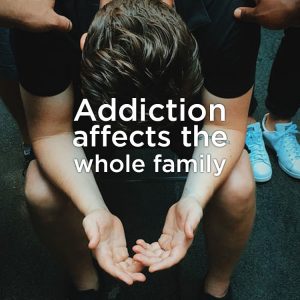
Many people who find themselves in a position where a loved one does not believe that they have a problem with drugs or alcohol. It is an innately awkward position to find oneself in. The most important thing is to make sure that it does not go ignored. Many people would simply stick their heads in the ground. Try to carry on blind to what is happening around them. This is the worst thing that can be done. If a family member or loved one does have an issue with alcohol or drugs they will undoubtedly go through more pain and suffering. If the problem is not acknowledged than if it is.
Problem must be Recognised
For the individual to move on from their addiction the problem must at first be recognised and be openly challenged. Many find it easier to employ an interventionist to do this. As it is far easier for a third party to objectively discuss issues more openly as they are free from judgement and prejudice. Whereas a person may feel attacked by someone that they know when approaching such an issues. A person who is trained and experienced in addressing such issues can draw upon their own experience with addiction. Enabling them to empathize with the person in question. Making them suited to choose the most effective approach at seeking help with their problem.
The nature of an intervention is where a group of friends of family come together in order to address a person’s problem with drugs or alcohol. By using personnel experiences of how the addiction has affected them personally. This is in order to alert them of the consequences of their behaviour. To allow them to realise the affect they are having upon those who they love.
Interventions
The unfortunate reality of interventions is that they are not always successful. If you or your family has staged an intervention which has not forced the relative or loved one to reassess their habits there must be a stance taken. Many decide that they will have no part of their addiction. As a result will not fund or lend any financial help to the addict. In this sort of situation it is very difficult for the addict to get past the denial. Often it takes an event which highlights to them the sincerity of their position and what they are doing to themselves and their family.
Denial
Whether it is because they are clouded by denial. Or because it is still too early for them to realise the gravity of their new found habit. It can be incredibly difficult for those around them to watch an almost guaranteed negative outcome. It must be made clear to the addict that when they realise that they have a problem and acknowledge that they need help. That you will be there to offer it to them. This is incredibly important because if the addict doesn’t feel as though they have someone to go to when they want help. They simply will continue with their addiction because of the fear of something different.
